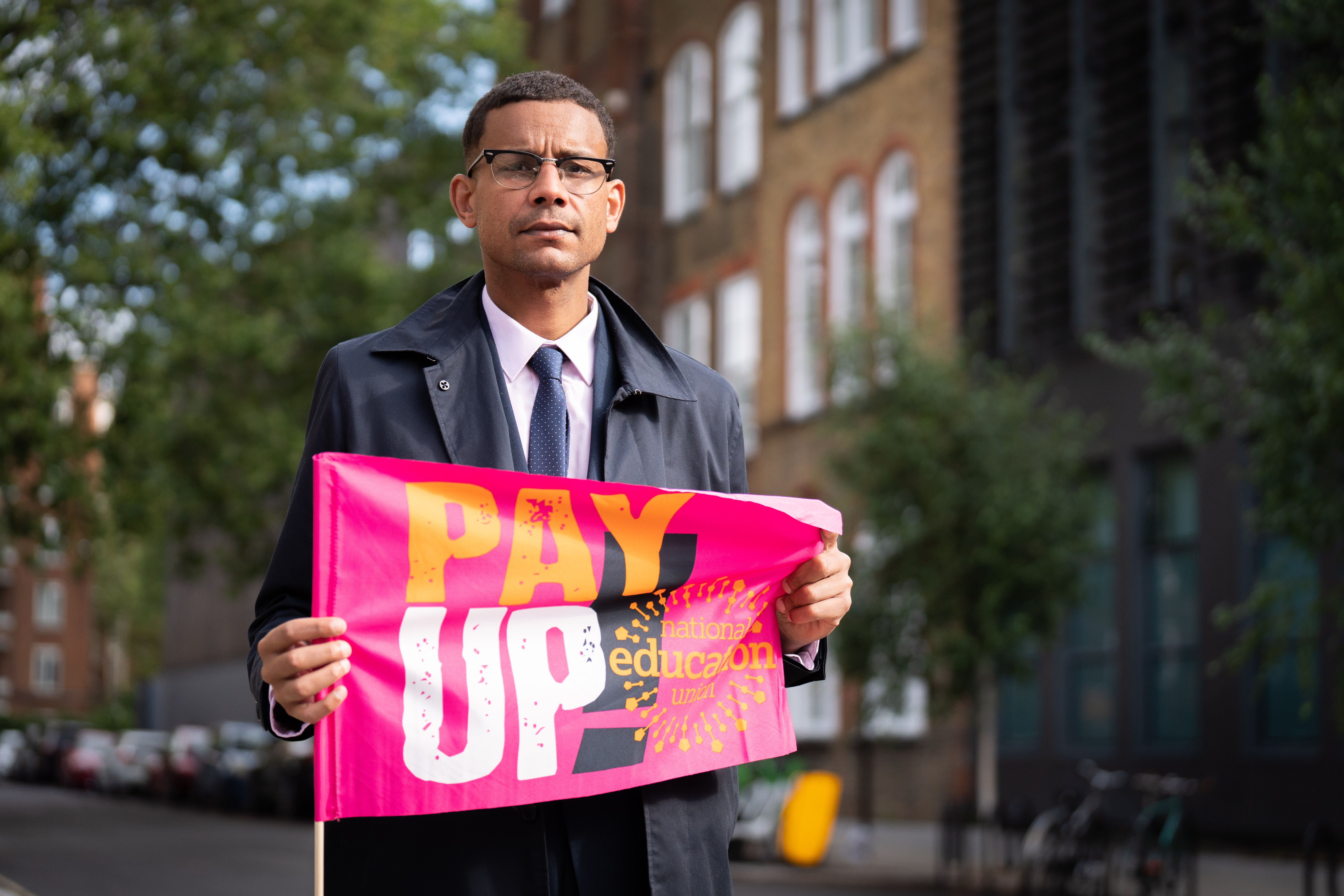Teaching union to wait for Government’s pay offer before launching strike ballot
National Education Union members staged eight days of strike action in state schools in England last year in a pay dispute.

A teaching union will delay moving to a formal ballot on strike action until it knows what the Government’s pay offer for teachers will be for September.
Delegates at the annual conference of the National Education Union (NEU), the largest education union in the UK, have voted for members to first take part in a “snap poll” on the Government’s pay and funding offer for 2024/25.
A motion, passed at the union’s conference in Bournemouth, said if the pay offer is rejected with a “convincing turnout” in the snap poll, then the union should move to a “formal ballot” on strike action over pay and funding.
The Government has yet to publish the recommendations of the School Teachers’ Review Body (STRB), or its decision on whether to accept them.
An amended urgent motion, carried by conference delegates on Thursday, called on the NEU executive to “intensify campaigning and mobilising” of its members ahead of the Government’s pay offer and funding settlement.
The Government needs to take action to solve the crisis that is threatening to destroy education,but if it – or any government that comes after it – does not, we will
It called on the union to “present the pay and funding offer to members in a snap poll, and if rejected with a convincing turnout, move to a formal ballot”.
The debate came after an overwhelming majority of NEU teacher members in England and Wales who took part in a preliminary ballot said they would strike to secure a fully funded, above-inflation pay rise and improved funding.
Speaking to the media ahead of the debate, Daniel Kebede, general secretary of the NEU, suggested that teacher walkouts could be staged in the autumn term if a formal ballot on pay and funding was successful.
The NEU leader called on Education Secretary Gillian Keegan to be ready to open up “serious talks” to avoid a “collision course” with the union.
NEU members staged eight days of strike action in state schools in England last year in a pay dispute.
Last month, the Department for Education (DfE) said in evidence to the STRB that teachers’ pay awards should “return to a more sustainable level” after “two unprecedented years”.
In July last year, the Government agreed to implement the STRB’s recommendation of a 6.5% increase for teachers in England, and co-ordinated strike action by four education unions was called off.
Delegates at the annual conference of another teaching union, the NASUWT, passed a motion on Saturday in Harrogate, North Yorkshire, which called for political campaigning to “take priority over industrial action” ahead of the general election.
Overall, 78% of NASUWT teacher members in England who took part in the union’s consultative ballot voted against holding a formal ballot for industrial action over pay and working conditions.
Mr Kebede said: “Today, the NEU put this Government, and any new government that follows it, on notice: We will move to a formal strike ballot in England and Wales if and when necessary to save our schools and colleges.
“This decision is a clear message to Gillian Keegan.
“If you want to fix the urgent recruitment and retention crisis and support schools and colleges to meet the rising tide of pupil needs, you must meet with the NEU to directly discuss the question of pay and funding.”
He added: “The Government needs to take action to solve the crisis that is threatening to destroy education, but if it – or any government that comes after it – does not, we will.”
A DfE spokesperson said: “It is extremely disappointing that the NEU continues to threaten the possibility of a formal ballot for strike action.
“Further strike action would cause more disruption to pupils who have already lost over 25 million school days due to last year’s industrial action.
“The independent STRB is currently considering evidence for this year’s pay award and unions should engage with this process rather than threatening industrial action.
“Overall school funding is rising to over £60 billion in 2024/25, its highest-ever level in real terms per pupil – and teachers have already benefited from two historic pay awards totalling over 12% in just two years.”